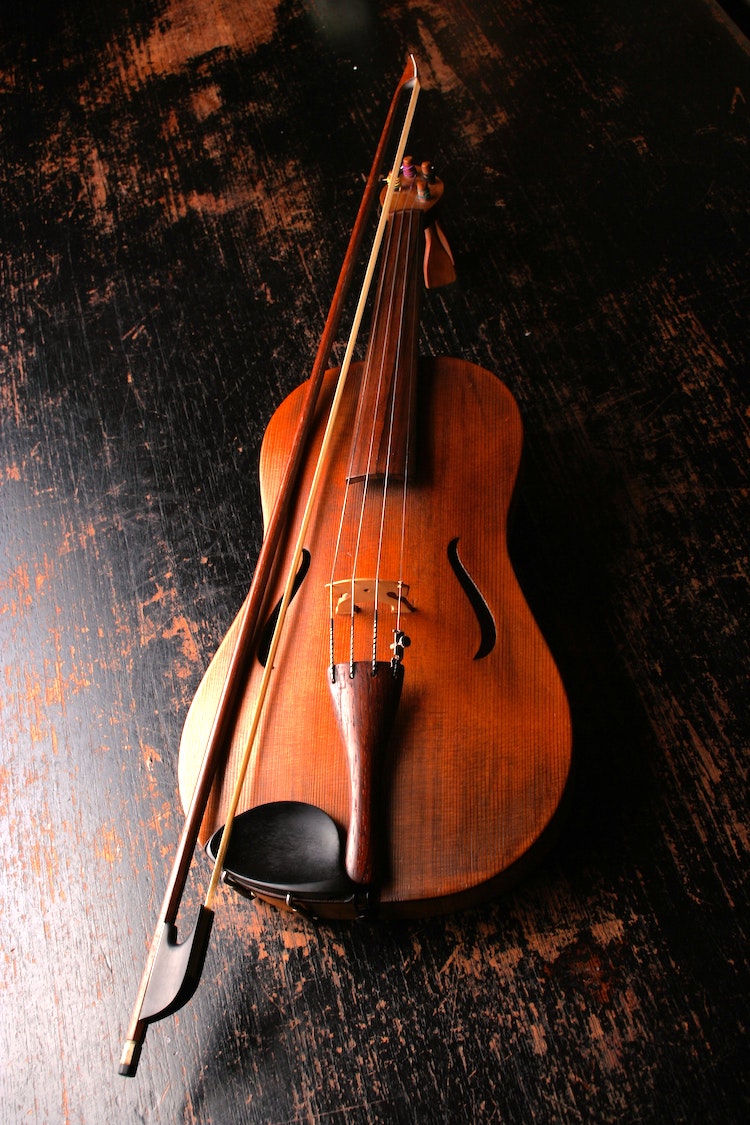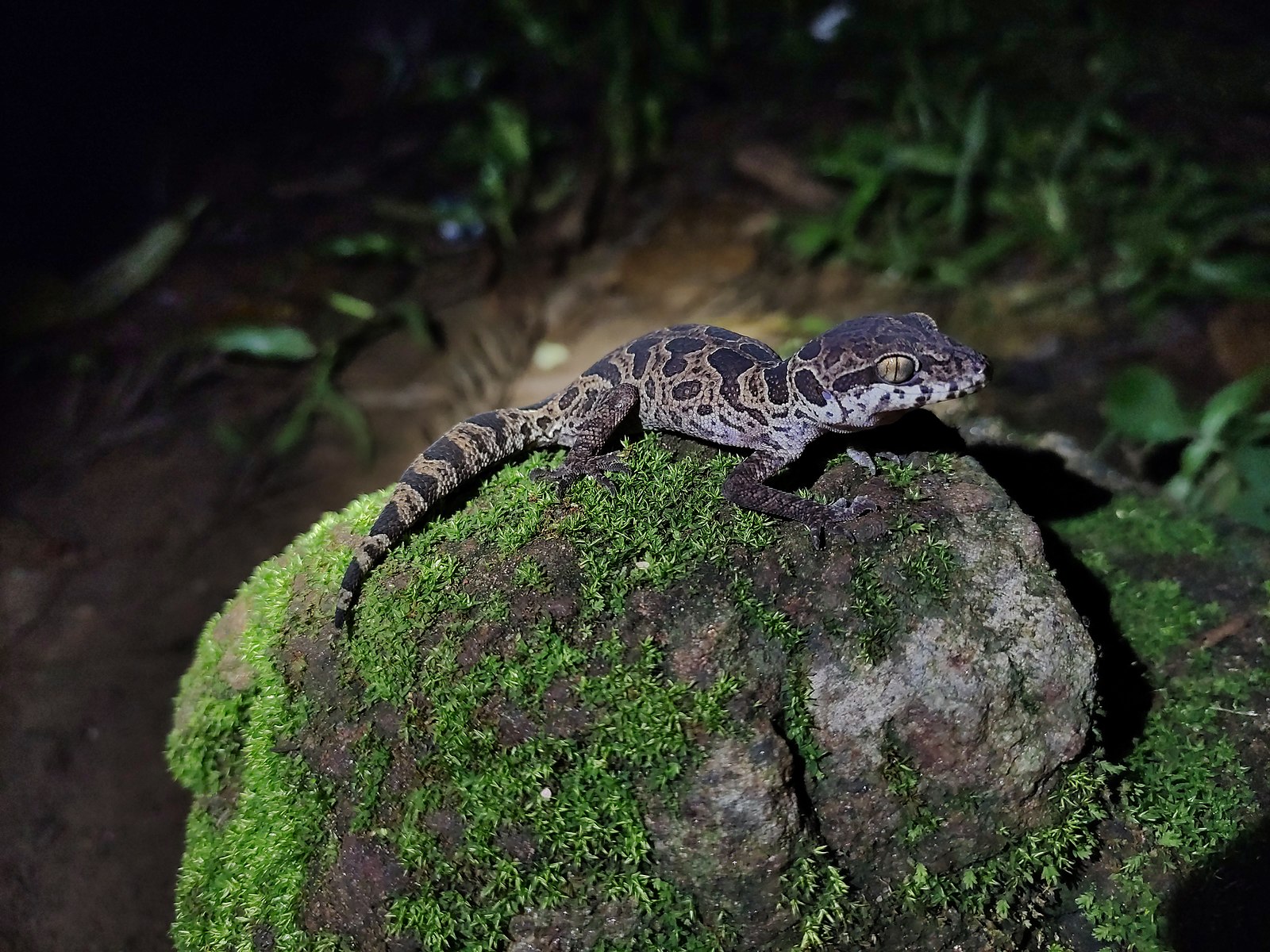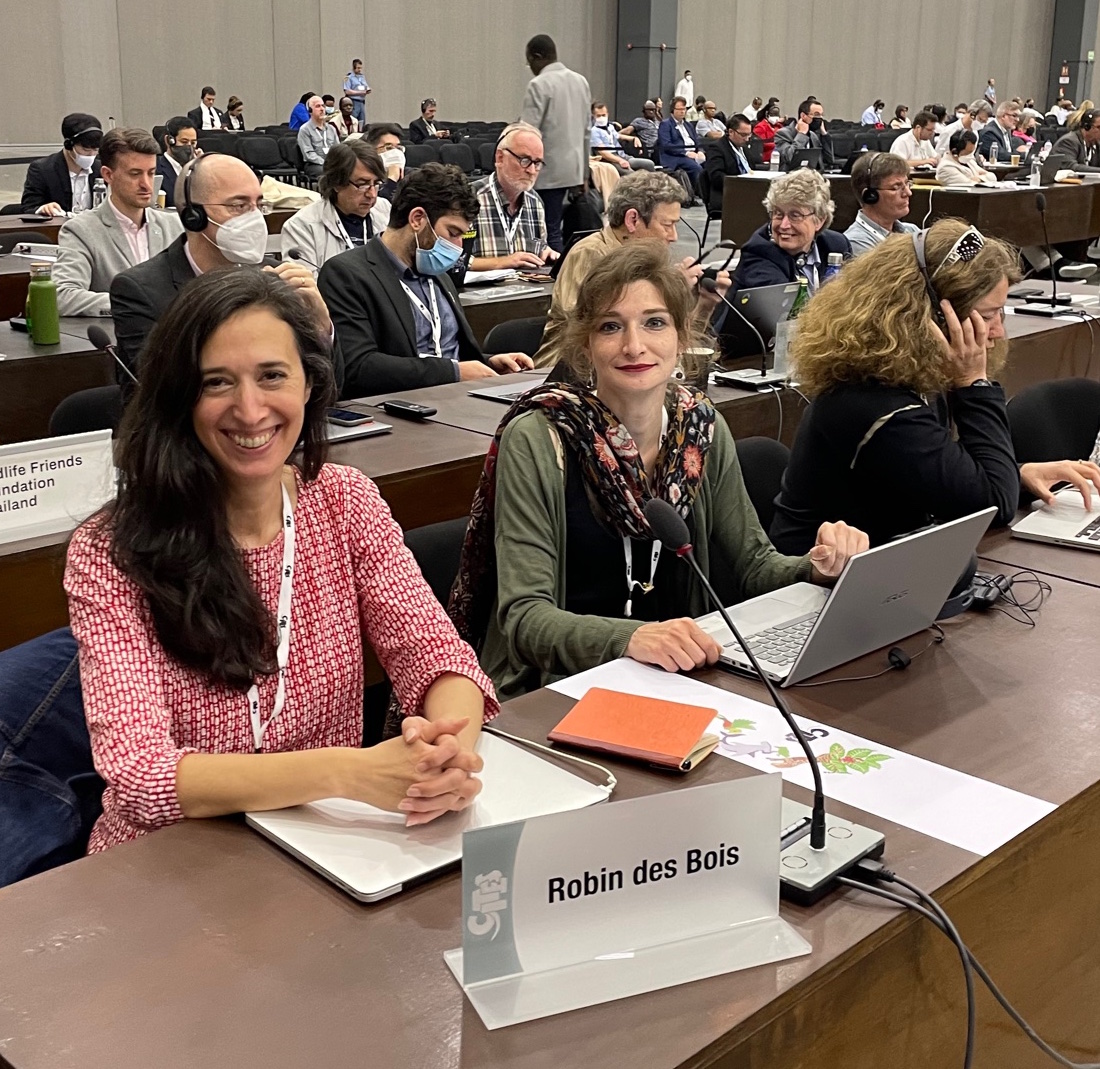Press release CITES CoP19 n°6 – Continuation and End
Panama
Arrk !
The whole world agrees to oppose deforestation in the Amazon. However, for the Brazilwood (Paubrasilia echinata), CITES is sensitive to the music of chainsaws and is not concerned about the disappearance of Brazil’s last Atlantic forests. Among the trees that have fallen victim is the Brazilwood, whose wood is used for bows and bow blanks for violins and other string instruments (see the paragraph on Brazilwood in the press release “Panama, the great sellout of wild animals and plants” [1], Nov 14, 2022).
To counterbalance Brazil’s proposal to list the Paubrasilia echinata in Appendix I, 10 instrument manufacturers such as Taylor Guitars, and professional organisations such as the Confederation of European Music Industries came to Panama. For several months, they had been hanging around in front of the national CITES authorities, particularly in France. They invited a Panamanian violinist and cellist to play for the delegates, highlighted the value of craftsman violin makers, forgot about the Chinese manufacturers who dominate the market, and featured soaring lyricism about the universality of music. They ended lulling all the delegations to sleep with a soap opera about alleged planting efforts under the International Pernambuco Conservation Initiative and the risk of the disappearance of a centuries-old tradition. There are certainly some IBAMA-authorised plantations of Pernambuco. These are only decoys for the sale of illegal timber. The bow makers themselves say that Brazilwood has to be 80 to 100 years old to be of good quality. It is deplorable that stringed instrument manufacturers and musicians continue to promote such plundering. Conservation NGOs did not encounter such resistance from modern piano manufacturers and pianists. They have faced the facts and found other materials than elephant ivory for modern piano keys.
While reiterating that Appendix I is fully justified because “this endemic and endangered species has been overexploited first for dyeing and then for musical instruments”, the Brazil delegation, embroiled in the Bolsonaro/Lula transition, ultimately settled for a decision calling on CITES to “assess the possibilities of establishing a traceability system to record the origin of bows” and on Contracting Parties to “consider registering stocks” of Brazilwood. The USA and EU delegations warmly thanked Brazil for its “pragmatism”.
Robin des Bois is pragmatic in another way and is asking the French government and the EU to make the declaration and registration of Brazilwood stocks mandatory as soon as possible.
The tuned notes
Neotropical wood turtles (Rhinoclemmys spp.)
The proposal by Brazil, Costa Rica and Panama to list the entire genus in Appendix II was accepted by consensus.
Narrow briged musk turtle (Claudius angustatus)
The proposal by Mexico to list the narrow briged musk turtle in Appendix II was accepted by consensus.
It lives in Belize, Guatemala and Mexico, is hunted for meat consumed locally and captured for the swiftly growing international pet market. It does not fare well in captivity and, by the admission of professional sellers, is systematically aggressive. This bad reputation doesn’t make the prices go down, reaching 495 €/specimen on French websites.
Mud turtles (19 species of Kinosternon)
The proposal by Brazil, Colombia, Costa Rica, El Salvador, Mexico, Panama and the USA to list Kinosternon cora and K. vogti in Appendix I and all other species of Kinosternon spp. in Appendix II was accepted by consensus. The EU was against but it was isolated.
They are threatened by poaching, invasive species such as the American bullfrog, the red-eared slider, agricultural burning, toxic pollutants in aquatic ecosystems, and fragmentation of their habitats by roads. A specimen can be sold in China for 150 US$ and even 10,000 US$ for K. vogti.
Mexican musk turtle and giant musk turtle (Staurotypus triporcatus and S. salvinii)
The proposal by El Salvador and Mexico to list the Mexican musk turtle and giant musk turtle in Appendix II was accepted by consensus.
Adults can grow to 50 cm and weigh 10 kg. An individual can be sold for up to 1,000 US$ in the USA.
Musk turtles (Sternotherus spp.)
The proposal by the United States of America to list musk turtles in Appendix II was accepted by consensus.
They are endemic to the United States, except for one species that also lives in Canada and Mexico. 1.5 million live specimens were exported between 2013 and 2019 for the pet trade in Southeast Asia and Europe. Online a juvenile sells for 20-35 US$, delivered within 24 hours.
The USA proposal was based, among other things, on excerpts from “On the Trail”, Robin des Bois’ quarterly information and analysis report on endangered animals poaching and smuggling.
Softshell turtles (Apalone spp.)
The USA proposal to list softshell turtles in Appendix II (except for the subspecies Apalone spinifera atra already listed in Appendix I) was accepted by consensus. Also, among the references supporting this proposal, extracts from “On the Trail” were quoted.
Leith’s softshell turtle (Nilssonia leithii)
India’s proposal to transfer Leith’s softshell turtles from Appendix II to Appendix I was accepted by consensus.
Jeypore hill gecko (Cyrtodactylus jeyporensis)
India’s proposal to list the Indian gecko in Appendix II was accepted by consensus. The European Union was in favour. Its range is less than 100 km2 in southern Odisha and northern Andhra Pradesh. It is a leader in the pet trade. It is regularly available on European online platforms. It deserves to be listed in Appendix I.
Zebra -Pleco (Hypancistrus zebra)
Brazil’s proposal to list zebra plecos in Appendix I had been rejected last week (see “The ups and downs of CITES [4]“). Brazil requested to reopen the debate and proposed a compromise that was accepted by consensus. The zebra pleco now enters CITES Appendix II with a zero quota for wild specimens.
“CITES : 11 ups and one down [5]” (CITES CoP19 n°5), November 23, 2022
“The ups and downs of CITES [4]” (CITES CoP19 n°4), November 21, 2022
“Good news for macaques [6]” (CoP19 n°3), November 18, 2022
“Good day for trees [7]“, (CITES CoP19 n°2), November 18, 2022
“Panama, the great sellout of wild animals and plants [1]” (CITES CoP19 n°1), November 14, 2022
Charlotte Nithart and Emilie Courtin, Robin des Bois delegates in Panama


